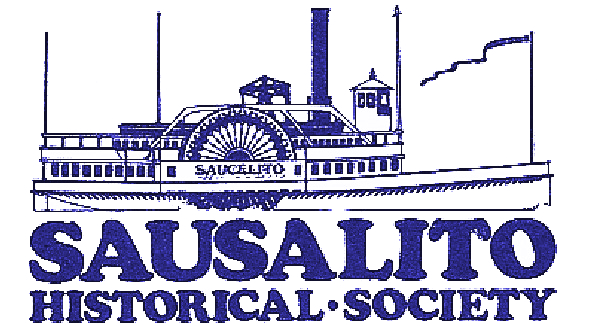By Larry Clinton, Sausalito Historical Society
In 1579, Sir Francis Drake was exploring the West Coast in search of the elusive “northwest passage.” The ship’s chaplain, Frances Fletcher, and others kept journals of that voyage, that were later compiled into a book, The World Encompassed by Sir Francis Drake, published by Drake’s nephew Francis Drake in 1628.
In June of 1579, Drake and his crew anchored near San Francisco Bay for five weeks to prepare for the long sail across the Pacific Ocean. There they met the native inhabitants, the Coastal Miwok. Here are excerpts from the journals describing what happened next:
PHOTO FROM WIKIPEDIA
Miwoks considered Sir Francis Drake and his men as gods
Notwithstanding it was in the height of summer, and so near the sun, yet were we continually visited with like nipping colds as we had felt before; … neither could we at any time, in whole fourteen days together, find the air so clear as to be able to take the height of sun or star [latitude].
After our coming to anchor, the people of the country showed themselves, sending off a man with great expedition to us in a canoe. Who being yet but a little from the shore, and a great way from our ship, spoke to us continually as he came rowing on. And at last at a reasonable distance staying himself, he began more solemnly a long and tedious oration, after his manner: using in the delivery thereof many gestures and signs, moving his hands, turning his head and body many ways; and after his oration ended, with great show of reverence and submission returned back to shore again.
He shortly came again a second time in like manner, and so the third time, when he brought with him (as a present from the rest) a bunch of feathers, much like the feathers of a black crow, very neatly and artificially gathered upon a string, and drawn together into a round bundle; being very clean and finely cut, and bearing in length an equal proportion one with another; a special cognizance (as we afterwards observed) which they that guard their king’s person wear on their heads. With this also he brought a little basket made of rushes, and filled with an herb which they called Tabáh. Both which being tied to a short rod, he cast into our boat.
Our General [Drake] intended to have recompensed him immediately with many good things he would have bestowed on him; but entering into the boat to deliver the same, he could not be drawn to receive them by any means, save one hat, which being cast into the water out of the ship, he took up (refusing utterly to meddle with any other thing, though it were upon a board put off to him) and so presently made his return. After which time our boat could row no way, but wondering at us as at gods, they would follow the same with admiration.
The 3 day following our General first of all landed his men, with all necessary provision, to build tents and make a fort for the defense of our selves and goods: and that we might under the shelter of it with
more safety (whatever should befall) end our business; which when the people of the country perceived us doing, as men set on fire to war in defense of their country, in great haste and companies,
with such weapons as they had, they came down to us, and yet with no hostile meaning or intent to hurt us: standing, when they drew near, as men ravished in their minds, with the sight of such things as they never had seen or heard of before that time: their errand being rather with submission and fear to worship us as Gods, then to have any war with us as with mortal men. Which thing, as it did partly show itself at that instant, so did it more and more manifest itself afterwards, during the whole time of our abode among them. At this time, being willed by signs to lay from them their bows and arrows, they did as they were directed, and so did all the rest, as they came more and more by companies unto them, growing in a little while to a great number, both of men and women.
To the intent, therefore, that this peace which they themselves so willingly sought might, without any cause of the breach thereof on our part given, be continued, and that we might with more safety and expedition end our businesses in quiet, our General, with all his company, used all means possible gently to entreat them, bestowing upon each of them liberally good and necessary things to cover their nakedness; withall signifying unto them we were no Gods, but men, and had need of such things to cover our own shame; teaching them to use them to the same ends.
And so began the Westernization of the native Miwoks. They were able to continue living peacefully for two centuries, until the Spanish discovered San Francisco Bay in 1769. By 1776, Mission Dolores had been built and the subjugation of Miwoks as laborers and servants was in full sway.
Within 20 years, a combination of European illnesses and harsh treatment devastated the Southern Marin Miwok population, according to Miwok historian Lucina Vidauri, who spoke recently at City Hall on Miwok history and current attempts to preserve the tribal culture.

